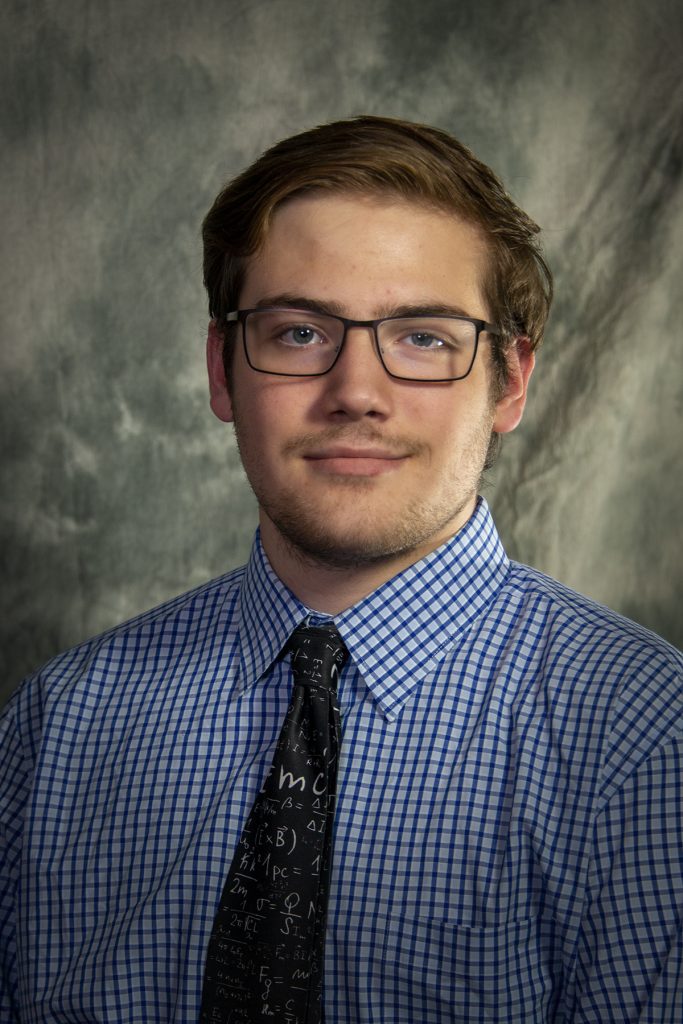Riley Nold, a junior in the College of Arts and Sciences and the ASSURE 2022 awardee, shares a captivating story on groundbreaking research conducted in collaboration with Dr. Adam Hauser, Associate Professor in the Department of Physics and Astronomy. The story describes a series of accomplishments, including high-fidelity theoretical predictions, ultra-high vacuum chamber experiments, and the development of high-quality thin-films. The successful synthesis of Co2TiSn and TiN thin-films, as well as the computational analysis of Heusler alloys based on yttrium-tin, are examples of Nold’s contributions. Nold’s reflections emphasizes the ASSURE program’s transformative impact on undergraduate research, highlighting the mutually beneficial relationship between mentorship, proposal writing, and the pursuit of scientific excellence. Discover the advantages of the ASSURE program for undergraduate research by reading Riley Nold’s story below.

My proposed research was centered on the study of transition metal nitride (TMN) materials [in particular CoN, MnN, and CoMnN2], from both a computational and experimental perspective. The original proposal can be summarized by a few key goals:
- To generate high-fidelity theoretical predictions of transition metal nitride systems pertaining to their crystallographic nature, electronic properties, and potential for thin-film creation.
- To utilize an ultra-high vacuum chamber to grow quality thin-films of candidate nitride materials via a DC off-axis magnetron sputtering method.
- To characterize the thin-film systems produced and test our computational pre- dictions, primarily via X-ray diffractometry, atomic force microscopy, and physical property measurement system techniques.
Thanks to ASSURE program’s support, my research made important contributions in both its computational and experimental goals. I fully analyzed ten distinct transition metal Heusler alloys based on yttrium-tin (X2YSn) using the proposed DFT calculations. This analysis included ground-state lattice constants, total and atomic magnetic moments, band-gaps, and spintronic properties. I am currently writing up the analysis results to be submitted in an academic journal. I was also able to significantly improve a broader data-set of Heusler alloys. These data were published recently by data-in-brief.
On the experimental side, I worked over the summer in Dr. Adam Hauser’s lab growing and analyzing Co2TiSn and TiN thin-films, with the TiN acting primarily as a buffer layer for the growth of the Heusler material. The ASSURE research grant funds were used to grow these thin-films on manganese-aluminate (MAO) substrates. Working together with two graduate students, we produced highly crystalline thin films with very little stoichiometric error and nearly no surface defects. These results were confirmed by X- ray diffraction analyses (performed by me) in conjunction with electron microscopy images taken of the samples. The results of this work will be presented at the national American Physical Society meeting in March of 2024 by our group. Dr. Hauser’s group is also working on a manuscript of these results to eventually submit for publishing, which will include samples made possible by the ASSURE grant funding.
I originally heard about the ASSURE program from my faculty mentor Dr. Adam Hauser. After discussions with him about the program and my research goals over the next year, we felt it would be a great opportunity both to practice my proposal writing as well as to potentially fund some important projects we were just beginning. Overall, I found both of these aspects to be highly rewarding in my research experience.
Also, on a more practical note, the funds from the ASSURE grant have made possible work that has led to one publication and at least two manuscripts in-progress, which speaks directly to its important role in undergraduate research. The last year of this research has also been made possible by the patient and supportive mentorship of Dr. Hauser. His balance between providing insights and giving space for my independent growth (and struggles) led not only to the project’s success, but also my personal growth as a researcher. Overall, I would recommend utilizing the ASSURE program to any undergraduate student interested in boosting their project and learning more about professional proposal writing.